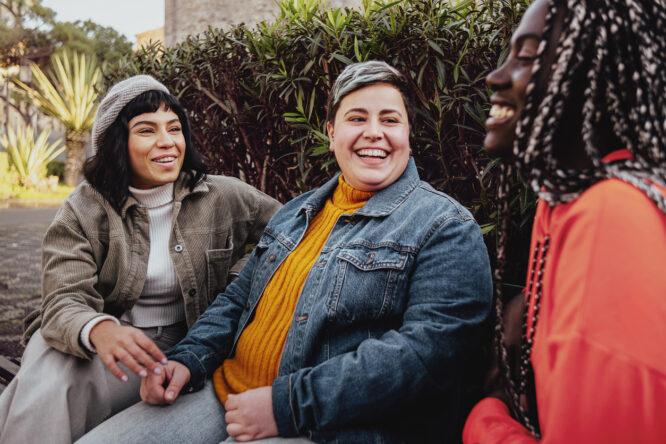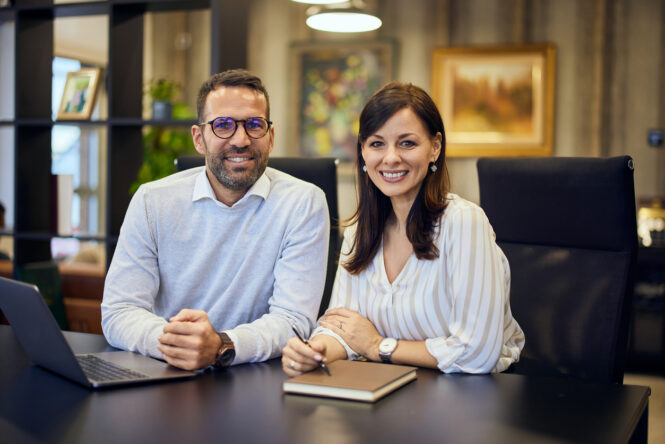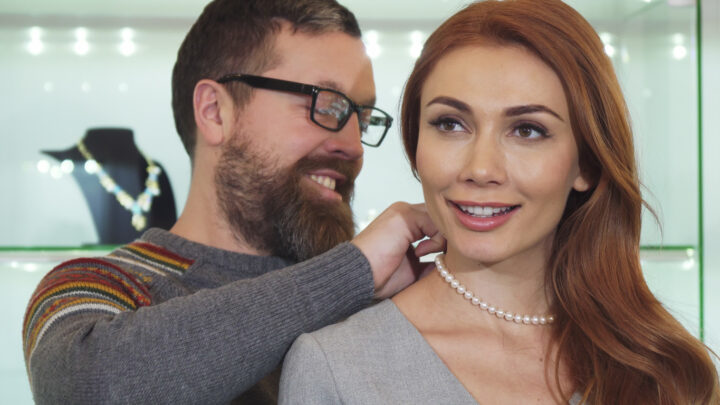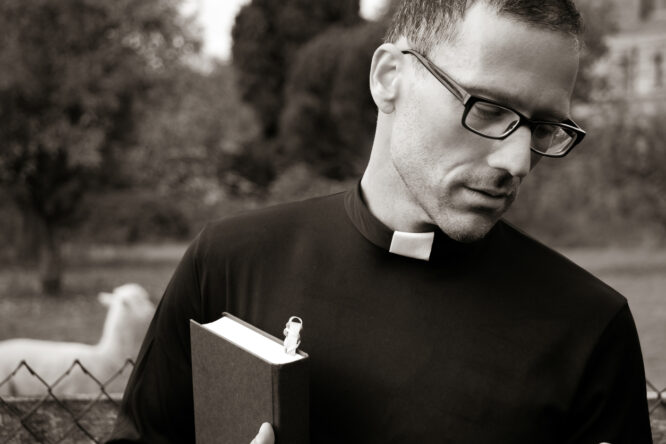Third dates can be a sweet spot — still early enough to feel exciting, but far enough in that deeper conversations start to matter.
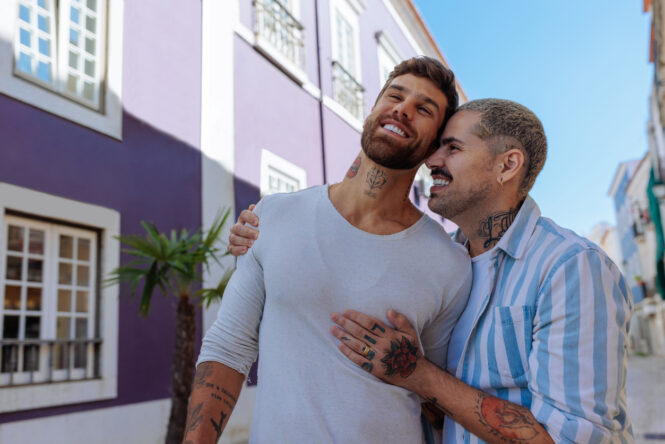
For queer couples especially, there are a few meaningful topics that help build clarity, safety, and emotional connection early on. These aren’t a way of ticking boxes or getting too intense too fast. They’re focused on making space for the kind of honest, open discussions that helps both people feel more grounded and seen from the start.
1. How out you are, and what does that look like day to day
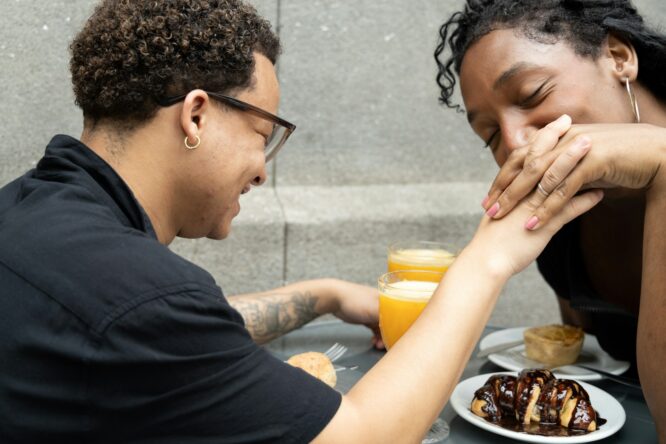
Coming out isn’t a one-time event, and everyone’s version of being out looks different. Some people are totally open at work and with family, while others are more private or navigating complex situations. You’re not asking this to be judgemental. In reality, it just helps you know what to expect. It helps avoid awkward moments later, like assuming someone’s out when they’re not, or misunderstanding why certain topics feel sensitive.
2. What kind of relationship structure you want
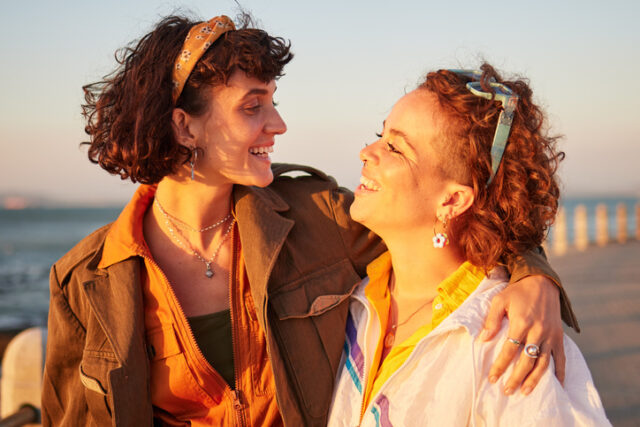
Some people are strictly monogamous. Others are open, poly, or figuring things out as they go. Queer relationships often reject default norms, which makes clear conversation even more important. Bringing this up early doesn’t mean pushing for commitment. It just helps make sure you’re not heading in totally different directions without realising it.
3. How you feel about labels, both for yourself and the relationship
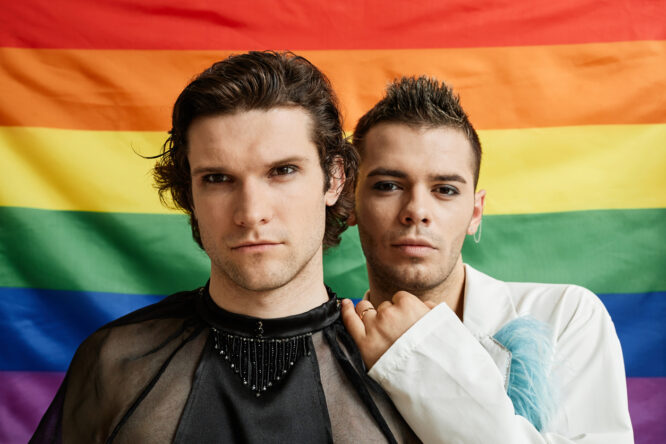
For some, labels feel empowering—a way to honour identity; for others, they feel limiting or unnecessary. The same goes for defining the relationship itself, whether it’s “partner,” “girlfriend,” “boyfriend,” or something more fluid. Talking about this now avoids mismatched expectations later. It also gives you both room to honour your own language without stepping on each other’s toes.
4. Any parts of your identity or experience that people often misunderstand
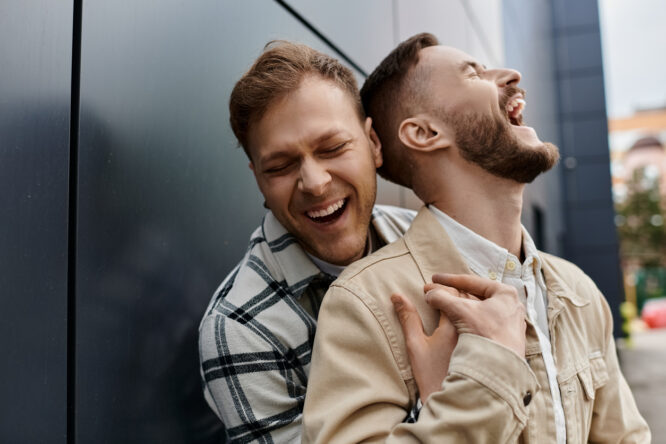
Maybe you’re neurodivergent, trans, or from a cultural background people tend to stereotype. Or maybe you’ve had past partners who didn’t get why certain things mattered to you. Opening space for this conversation builds empathy. It helps both of you feel less like you need to explain or justify yourself later, and more like you’re starting from a place of curiosity and care.
5. What kind of intimacy feels good, and what doesn’t

This isn’t just about what happens in the bedroom; it’s about touch, affection, and emotional closeness. Everyone has different boundaries, comfort levels, and ways of expressing connection. The earlier this gets talked about, the easier it is to avoid misreading each other’s cues. Plus, it helps intimacy feel like something you build together, not something you just fall into.
6. Whether you’ve been in queer relationships before

This isn’t about experience for experience’s sake. It’s about context — how you’ve navigated dating in the past, and what those experiences taught you. Whether this is someone’s first queer relationship or one of many, it shapes how they show up now. Being honest about that gives the relationship a little more room to grow with understanding, not assumption.
7. What kind of support you want when you’re struggling
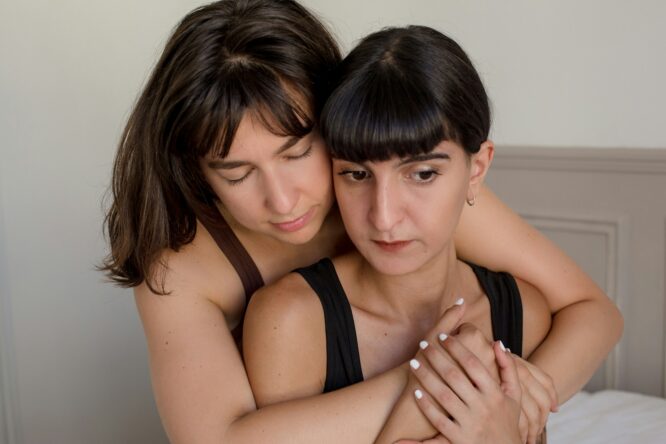
Some people want space; others want check-ins or quiet company. No one’s approach is wrong, but mismatched styles can lead to tension fast if no one talks about them. Having this conversation early builds emotional safety. It lets each person show up in a way that actually feels good to the other, rather than guessing or overthinking.
8. Any community dynamics that affect your dating life
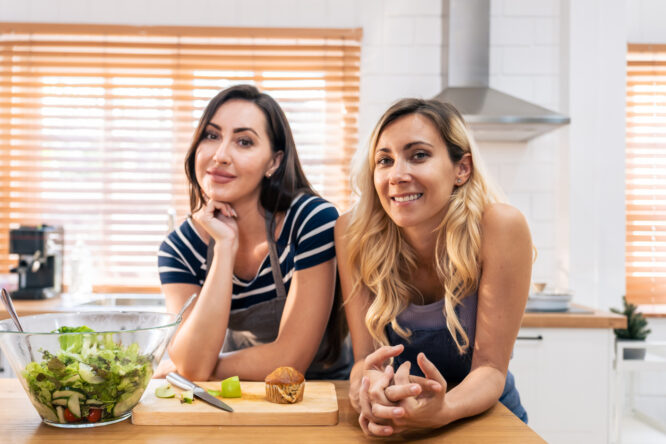
Maybe you’re part of a tight-knit scene where everyone knows each other, or maybe you’ve had to set boundaries with certain people or groups. Dating within the queer community can get complicated quickly, especially when social circles overlap. Being upfront about this avoids surprises later. It also opens space to talk about how you each navigate visibility, privacy, and boundaries in your shared community spaces.
9. What safety means to you in queer spaces
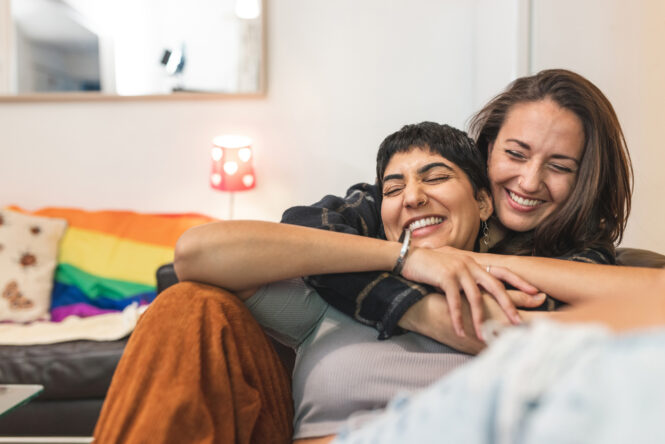
Safety looks different depending on where you live, how you present, and what your day-to-day life is like. For some, holding hands in public isn’t a big deal. For others, it’s still something they avoid. This conversation helps set expectations about what kinds of spaces feel comfortable. It also builds trust by showing that you’re tuned in to each other’s realities, not just your own.
10. How you deal with conflict
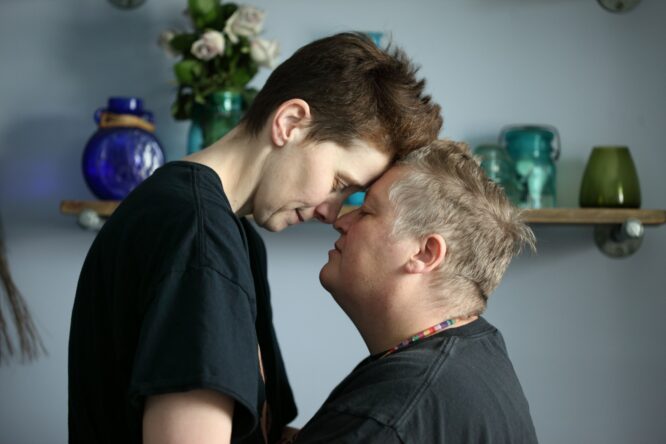
Everyone has a go-to style — avoidant, direct, emotional, logical. None of them are perfect, but knowing your style (and your date’s) makes a huge difference when tension shows up later. That doesn’t mean you should be thinking about fighting by date three. It’s about laying the groundwork so that if something does come up, it’s not the first time you’ve talked about how you communicate under pressure.
11. Whether you’re dating other people right now
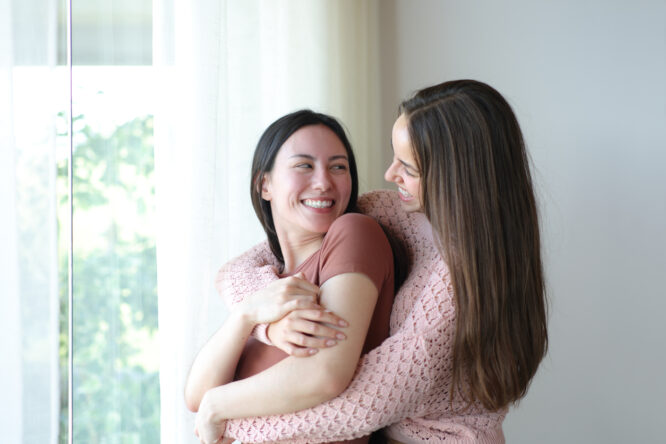
This one can feel awkward to bring up, but it saves a lot of confusion. Especially in queer circles where relationships often overlap, knowing what you’re both navigating helps avoid assumptions. You’re not demanding exclusivity here — it’s just about transparency. Being honest now builds trust, whether things stay casual or grow into something more serious.
12. What makes you feel most seen in a relationship

Everyone wants to feel known, but what that actually looks like varies. Maybe it’s small gestures, shared routines, or being asked thoughtful questions. This question invites warmth and reflection. It also makes future connection more intuitive because you’re already learning how to meet each other in a meaningful way.
13. What has shaped your view of love so far
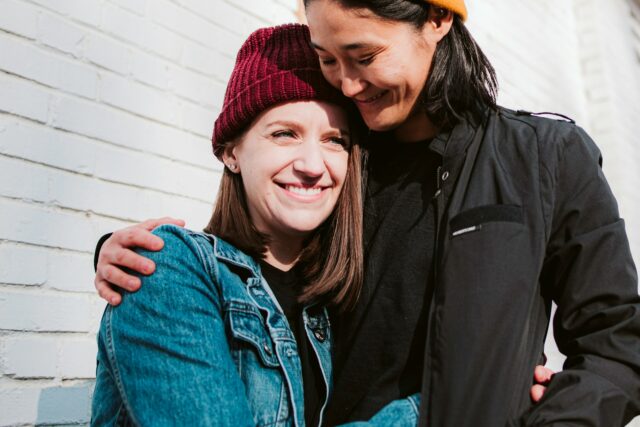 Source: Unsplash
Source: Unsplash Family, past relationships, media, queer history — it all adds layers to how we understand love and what we expect from it. Sharing that context early helps explain what you’re drawn to or cautious about. This isn’t an excuse for trauma-dumping or over-disclosing. It’s about giving each other a glimpse into how your hearts were formed, and how they might connect now.
14. How you want queerness to show up in your relationship
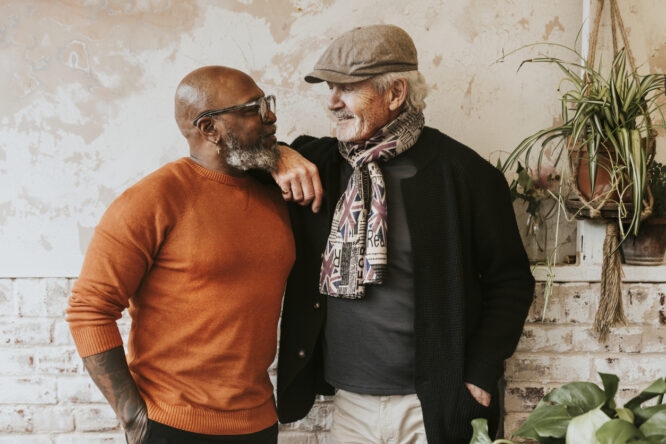
For some, being queer is front and centre — part of their activism, social life, and daily conversations. For others, it’s more personal or private. Both are valid, but they shape how a relationship moves through the world. Talking about this helps clarify shared values. It also makes space for differences, without assuming you’ll always approach things the same way.
15. Whether you’re having fun, and if you feel like yourself around each other

Third dates don’t have to be heavy. Sometimes the best question is the simplest one — are we enjoying this? Do you feel at ease, or like you’re performing? That kind of emotional check-in builds honesty without pressure. Because no matter how deep the conversations get, connection should feel like home, not homework.

